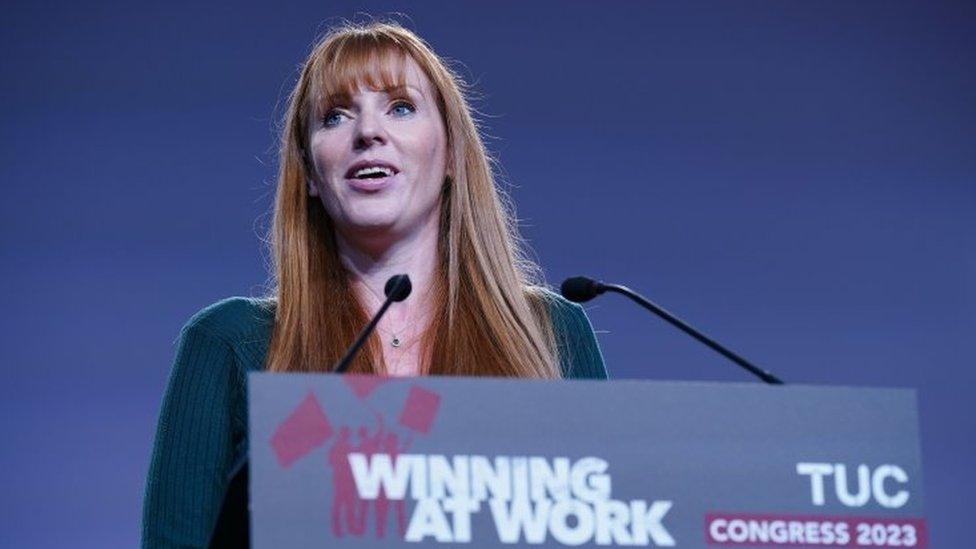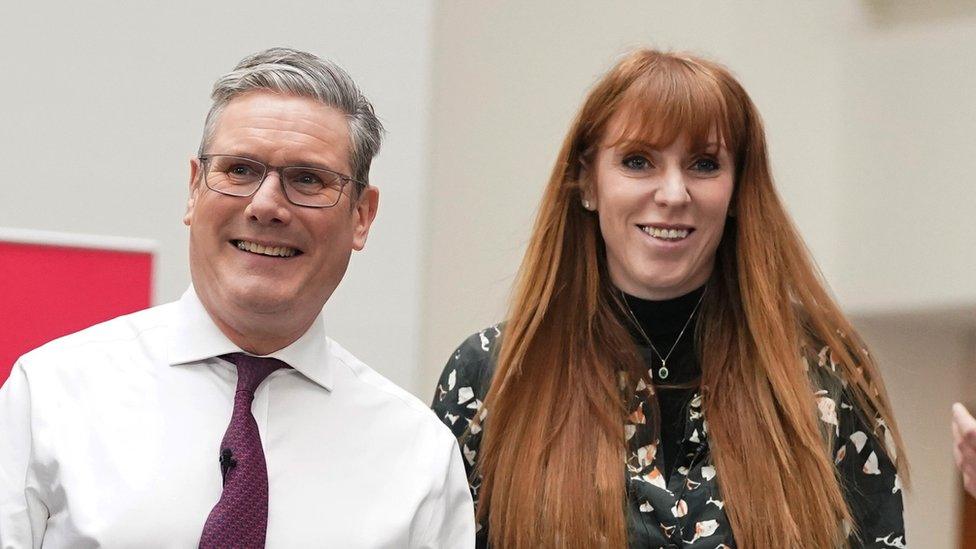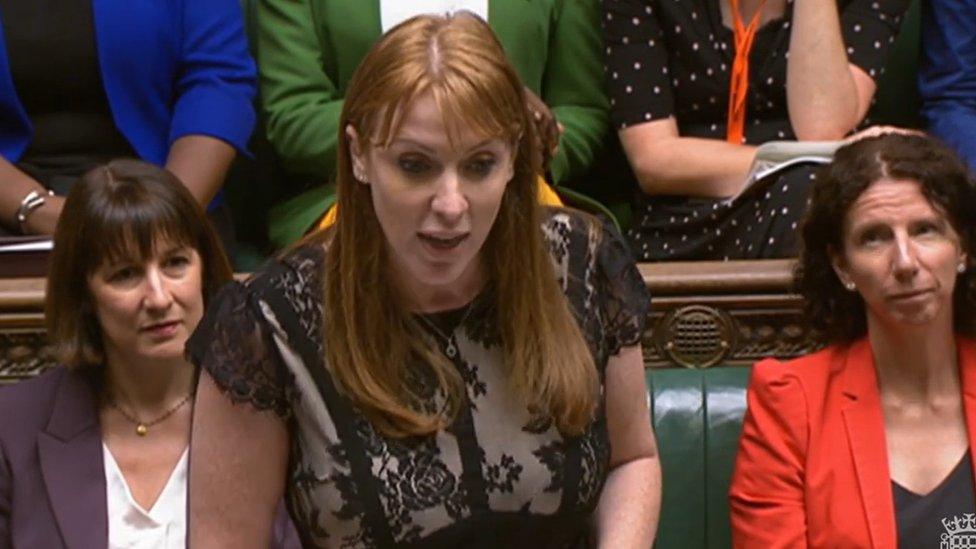Labour's Angela Rayner calls Tory levelling up 'a sham'
- Published

Labour's deputy leader Angela Rayner told trade unions about hr party's vision for levelling up
Labour's deputy leader Angela Rayner has branded the Conservative version of levelling up the country a "sham and a scam", in a speech to trade unions.
Ms Rayner told the TUC Congress that only Labour's plan to boost employment rights would deliver the promise of levelling up.
She said Labour would pass a law to improve workers' rights within the first 100 days of entering office.
The government has funded dozens of projects under its levelling-up agenda.
The main aim of levelling up is to reduce economic inequalities between different regions of the UK by improving infrastructure, such as transport.
The term, coined by former Prime Minister Boris Johnson, was a central theme of the Conservatives' pitch to voters outside London ahead of the 2019 general election.
The government has allocated £4.8bn for levelling-up schemes, but critics say it does not make up for the big cuts in local council funding since the Conservatives took power in 2010.
In her speech to an audience of trade unionists in Liverpool, Ms Rayner contrasted Labour's vision of levelling-up with that of the Conservatives.
She said the policies of the last Labour government - including the minimum wage and support for parents - "transformed my life and my prospects because it was done right".
She added: "But the foundations I relied upon to improve my life and my community has instead been levelled down by the Tories.
"With house building cratering and wages plummeting across the whole country, the government's agenda is a sham - and a scam.
"An empty slogan won't pay decent wages, false promises won't build secure homes, and a sound bite won't empower local people and local communities to take control of their futures."
Ms Rayner's speech comes after she was appointed to the key roles of shadow levelling up secretary and shadow deputy prime minister, in a reshuffle of Labour's top team last week.
Ms Rayner is a significant figure in Labour as the elected deputy leader, and will have influence over Labour's policies on strengthening employment rights in the run up to the next general election.
In her speech, she outlined plans to update union laws, outlaw blacklisting, ban zero-hour contracts, and repeal legislation that enforces "minimum service levels" in some sectors during strikes.
Ms Rayner - a former care worker - also announced there would be a "fair pay agreement" for workers in adult social care, which she believes will make a big difference to low-paid workers in the sector.
Responding to her speech, the Conservatives said Ms Rayner had committed to giving "Labour's union paymasters" more "control over Britain's economy". "Only the Conservatives are delivering the protections we need to stop Labour-backed union leaders from trying to shut down the country," said Greg Hands, the chairman of the Conservative Party.
Ms Rayner's appearance at the TUC's annual gathering was designed to reassure trade unionists that Labour will not ditch its policies on employment rights.
The party has been nervous about making new spending commitments ahead of the next election, fearing the Conservative accusation that it cannot be trusted to manage public finances responsibly.
But many of the unions which help fund Ms Rayner's party are pressing for a more radical programme of policies.
At the TUC conference, delegates have voted for free schools meals for all primary school children in England, and public-sector wage rises above inflation.
And the TUC's general secretary, Paul Nowak, has called for Labour to consider wealth taxes to raise more funds to repair public services.
Labour leader Sir Keir Starmer met union leaders at a private dinner on Monday night.
But his party has been resisting calls from unions and some on the left of the party for higher wealth taxes and more money for public services, with the shadow chancellor, Rachel Reeves, setting out fiscal rules that would limit public spending.
- Published4 September 2023

- Published4 September 2023

- Published25 July 2023
